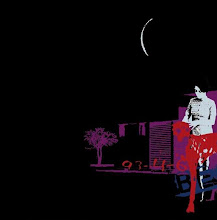A woman wakes up one morning and begins to write a book, effortlessly, finishing it in no time at all. Of an innovative, highly unusual bent, it instantly becomes the new literary souffle. Only now a respectable widow wants the proceeds from the sales, claiming its author is none other than her dead husband.
what will the woman do to substantiate her claims? is the book really an example of psychography (channeled from beyond)? how does the woman, the author, feel about her initial inspiration? what happens then?
Subscribe to:
Post Comments (Atom)



5 comments:
The accusing woman succeeds in poisoning herself, and the woman who wrote the book. They die. This begins a chase through the afterlife. The plagiarist is caught and put on trial. The deceased husband of the woman gives a stirring testimony. The plagiarizing woman is sentenced to life.
My dead husband wrote me a book, through my hand and my moist eyes shined like my wedding ring. It was about how he loved me and it was non-fiction. Just when I thought my heart would explode I found myself writing "the end". I go to Paris in the book and I live with a king. I sleep on roses and I have powers of all kinds. I showed the book to my dead husband's brother over a bottle of wine and I got him in bed and post-coitus, we put on soft music and smiled at each other through the veil of guilt.
The gender reassignment had been so well executed even her old friends would not recognise her as the struggling novelist she had been. But now her former life had popped back up to claim a slice, now there was a larger pie to share. These are the risks you run when you fake your own death.
Still it had felt cheap regurgitating the novel she'd written years before and calling it new. All that hard work to create something original, now flatpacked and reconstructed, Ikea-style.
But after consulting with her lawyers she decided on the easy option - communciation from beyond the grave was safer for tax purposes. And maybe there would be another book deal in it.
"Death and taxes, open-hand in glove, as always" she thought.
She had always felt that the book was just on the edge of her consciousness. It was a bit like her muse had been preoccupied with someone else and now was finally free.
Inde - I like that, a lot. It all happening in the afterlife with her sentence being "life" - another chance to learn. There's no going around it.
Groucho - sassy. More than meets the read too, since the husband might have been privy to the outcome all along, nudging them towards it.
Observer - ...amounting to a shrewd marketing strategy. A noir, no doubt, with them all getting away with it. Served with ennui, chilled.
Edie - a pragmatic answer, which could be interesting after all the ado.
Post a Comment